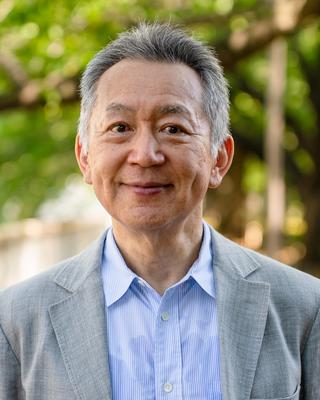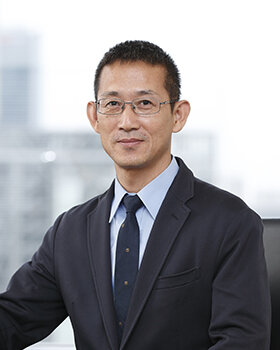Other Energy and the Environment 2022.11.07
Facilitating Revitalization of Nuclear Energy in Japan
Interim Recommendations of “Study Group on Next-generation Nuclear Energy Utilization”
According to the consensus of all members, the chairperson, Nobuo Tanaka, compiled these recommendations based on the discussions of the study group.
This is provisonal translation

Summary of the Recommendations
Identifying the Issue
Although the momentum toward carbon neutrality has been on the rise since the COP26 of last year, the circumstances related to global balance of energy demand and supply, and the national energy policy, such as the significant influence caused by the invasion of Ukraine by Russia since this February, are changing dramatically. In such a situation, the importance of nuclear power generation is once again recognized and is currently being reevaluated.
In these circumstances, an important question arises: what should Japan think and do about the future of nuclear power, especially after the restart of existing power plants? These interim recommendations aim to answer this question, and at the same time, trigger a broader discussion on the issue of nuclear energy.
Nuclear Power Generation in the Future
We believe that nuclear power is indispensable to form an energy mix in Japan. Past experiences tell us that, in the future, Japan must take a completely different approach from the conventional path to meet the following three conditions.
1. More Realistic Method of High-level Radioactive Waste Treatment
The traditional nuclear power generation relied on large light-water reactor and the fuel cycle based on the reactor type. When this system is employed, high-level radioactive waste is produced, and such waste must be stored in geological disposal facilities and kept isolated from the human living environment for several hundred thousand years. Not only is this problem of nuclear waste difficult to solve, it is also one of the major reasons for the lack of general understanding towards nuclear power. On the other hand, pyroprocessing technology for metal fuel cycle succeeded in shortening the isolation period of radioactive waste to 300 years by extracting plutonium and minor actinides (MA). This technology was tested using simulated fuel debris which had the same elements as TMI-2 fuel debris. Although this debris could not be reprocessed by the conventional reprocessing method, it was successfully reprocessed when this technology was applied. This means that both spent fuel that has been exposed to sea water and fuel debris that should be retrieved in the future from damaged reactors of Fukushima Daiichi Nuclear Power Plant could be reduced to radioactive substances, which merely requires isolation for 300 years. It should be noticed that the problems associated with the use of the light-water reactor system may be able to be skirted around when this technology is introduced in the future.
2. Contribution to Nuclear Non-proliferation
Besides the problem of high-level radioactive waste disposal, the light-water reactor system also poses difficulties when viewed from the angle of nuclear non-proliferation. The uranium enrichment technology that is essential for fabricating fuel of light-water reactors, together with spent fuel reprocessing technology, can be easily applied to development of nuclear weapons. Therefore, future nuclear power generation systems must be as unlikely as possible to produce materials that could lead to nuclear proliferation. Also, it will be necessary to review the management system of nuclear substances in line with the development of novel technologies and the associated nuclear proliferation risks.
3. Risk Minimization
Since the risk in nuclear power generation cannot be made zero, the idea of risk minimization is quite important. Even in case of a nuclear accident, smaller scale nuclear reactors with smaller fuel inventories could reduce the area affected, such as emergency evacuation zones. It is also necessary to develop technology for enhancing passive safety, so that the operation of a reactor can be stopped as safely and quickly as possible. As part of this process, if the design of the reactor can be made as locally acceptable as possible, it will help to gain the understanding of the local community where the reactor is located and encourage the participation of local residents.
Improvement of Environment
Supposing that such a kind of nuclear power generation is indispensable, It is difficult to be realized and maintained without an appropriate “environment”. Therefore, Environment of the next-generation nuclear power is also required in the meanwhile.
1. Political Leadership
If Japan intends to build new nuclear power plants in the future, it must review and evaluate its past nuclear energy policies including the nuclear fuel cycle, and present a clear future vision based on identifying achievement made and lessons learned. Strong leadership is important for this purpose. This is the time for the political leaders to take a serious look at nuclear power, objectively assess Japan's situation, and make decisions.
2. Obligation of the Government
The Government must be more upfront and clearly explain to the public the necessity for nuclear power plants and its vision for the future of nuclear energy in the power system, based on transparent discussions with a wide range of experts. Also, the Government needs to implement effective policy measures, enact appropriate legislation, and create an attractive business environment that allows companies to rationalize the huge investment and the risks associated with nuclear power generation.
3. Residents’ Participation and Interactive Communication
The issue of energy and global warming is of critical importance because it is closely related to civilian life and their economic activities. Therefore, at each stage of planning and implementation of energy and climate policies, including nuclear power, the participation of citizens of the location area in discussions must be ensured. To this end, the government must also increase the transparency of the policy process and strive for two-way communication with local citizens.
4. Reconstruction of Fukushima and Peaceful Uses of Nuclear Energy
Revitalization of nuclear engineering is important for Japan to reconstruct Fukushima and overcome difficulties still existing in areas damaged by the nuclear accident. Fukushima must become the place to watch over Japan's renewed attempts at science and technology related to nuclear power. Japan, which experienced the tragedy of Hiroshima and Nagasaki, must overcome difficulties and maintain the use of nuclear power to ensure security and provide an effective model for peaceful uses of nuclear energy.

